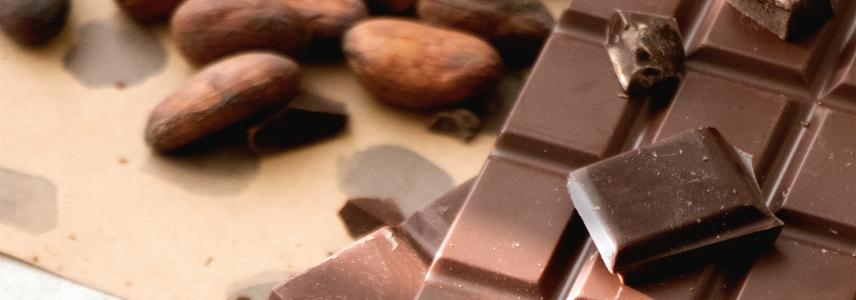Making organic chocolate mainstream on the European market

The market for organic chocolate products in Europe is growing. In most countries, organic chocolate is available in all price ranges. From low-end and private label to premium and high-quality products. This has resulted in a more competitive market. For exporters of cocoa beans, this means you have to make your unique selling points very clear.
The demand for organic-certified products is growing in Europe. This is partly due to the conscious consumption trend, with a focus on health and the environment. We expect the general organic food market in Europe to continue growing by 3 to 4% annually. This market also got a boost from the COVID-19 health crisis.
Organic chocolate in Europe
The demand for organic chocolate also follows this growth pattern. In several markets, like:
- Denmark;
- Switzerland;
- France; and
- Germany;
organic chocolate is now mainstream. In France, for example, around 53% of chocolate products in supermarkets had an organic label in 2019. Examples of popular organic chocolate brands in France are Alter Eco, Kaoka and Ethiquable. These brands combine social principles with certification, another growing trend in Europe.
Supermarkets are the main reason for the increase in organic chocolate in Europe. All leading retailers in Europe have their own popular organic chocolate supermarket label ranges. Examples of these are:
- Änglamark (Coop, Sweden);
- Carrefour Bio (France);
- REWE Bio (Germany); and
- Waitrose Duchy Organic (United Kingdom).
Other retailers have even created organic private label chocolate brands. An example of this is the Moser-Roth chocolate brand from German retailer Lidl.
Organic certification also shows signs of growth in higher-end segments, where certification and labels are less common. For example, in the European bean-to-bar segment, some brands only work with organic cocoa beans. The Austrian Zotter is a good example, as well as Original Beans from the Netherlands. More and more often, these chocolate makers market their products as beyond organic and produced with highly unique cocoa.
European Union organic cocoa imports
TRACES estimates that the European Union (EU) imported 66,000 tonnes of organic cocoa beans in 2019. But, EU imports of organic cocoa decreased by 11% between 2018 and 2019. This decrease is partly due to the increase in imports of other organic cocoa products. Import volumes of organic cocoa paste and powder increased by 19% over the same period, totalling 2,200 tonnes. The high growth rate for the import of organic cocoa products is due to the popular trend of cocoa processing at the origin.
Latin America is the world’s largest organic cocoa supplier. The EU imported most of its organic cocoa from the Dominican Republic; 24,000 tonnes in 2019. Peru was the second-largest supplier, providing the EU with nearly 13,000 tonnes. Africa is strengthening its position as an organic cocoa supplier. Sierra Leone, in particular, is securing this position. There, 80% of cocoa beans had organic certification in 2019. Sierra Leone supplied around 11,000 tonnes of organic cocoa to the EU in 2019. Other large organic suppliers are DR Congo and Uganda. These countries supplied 5,700 tonnes and 3,200 tonnes of organic cocoa beans to the EU respectively.
What is your unique selling point?
Do you want to export high-quality organic cocoa beans to Europe? Be ready to communicate about other aspects of your business besides your organic certification. For example, you could communicate about the uniqueness of your cocoa and your sustainable cocoa farming practices. This will give you a better chance to set yourself apart from your competitors.
As a new supplier of organic cocoa, it is important to realise that the entry requirements for organic cocoa are high and strictly controlled in Europe. So, make sure you discuss expectations and requirements with your potential buyer before starting a certification project.
Learn more about developments in the market
Visit our cocoa market intelligence page to learn more about the European cocoa market, trends and promising target markets, such as Scandinavia. For more about certified cocoa, read our studies on exporting certified cocoa to Europe.
Gustavo Ferro and Lisanne Groothuis from ProFound – Advisers In Development wrote this news article for CBI.
Stay informed
To stay informed on the latest developments in the cocoa sector, subscribe to our newsletter.